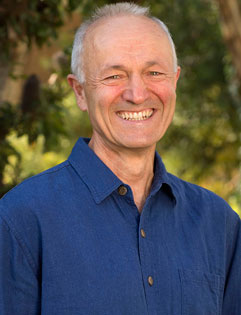
Understanding intellectual property
1. An overview
In part one of his talk, Peter Drahos briefly discusses property in general and its importance for how societies function before examining so-called 'intellectual property rights', which include patent, trademark and copyright laws. He reflects on their benefits and costs, their justifications and their impact on societies, including conferring the private power of taxation. Finally, he uses the example of copyright to amplify his arguments that we should be sceptical about having more of them and, indeed, would benefit from having less.
Please respond to a 60 sec survey after watching - Click here to take survey
The running order for the video is as follows:
Introduction. 0 - 1 minute 54 seconds
Part 1. Questions about intellectual property: 1 min 54 sec - 4 min 15 sec
Part 2. What are intellectual property rights?: 4 min 15 sec - 15 min 37 sec
Part 3. Justifications for intellectual property: 15 min 37 sec - end
Further reading
ARTICLES
Peter Drahos (2011): 'Patents, practical ethics and scientists', Prometheus, 29:3,
345-352. Available here.
Peter Drahos (2012): 'The US, China and the G-77 in the era of responsive patentability', Queen Mary Journal of Intellectual Property, Vol. 2 No. 4, pp. 315–328. Available here.
BOOKS
See books by Peter Drahos listed in the column on the right. Intellectual Property, Indigenous People and Their Knowledge is available as a free download here
Carlos M Correa (2000): Intellectual Property Rights, the WTO and Developing Countries - The TRIPS Agreement and Policy Options, Zed Books, London and Third World Network, Penang.
Graham Dutfield (2003): Intellectual Property Rights and the Life Sciences Industries - A Twenthieth Century History, Ashgate, Aldershot and Burlington
Christopher May and Susan K Sell (2006): Intellectual Property Rights - A Critical History, Lynne Rienner, Boulder and London.
Links
IPRsonline.org is an internet portal on Intellectual Property Rights (IPRs) and Sustainable Development. It contains a selection of relevant online documents and resources related to IPRs and sustainable development including a guide to IPRs, proposals submitted to the WTO, discussion papers classified by topics, latest news on IPRs, and links to listservs and relevant institutions working on IPRs.
Intellectual Property Watch provides a news service about IPRs across the world.
The South Centre follows developments in IPRs from a developing countries perspective.
About

Peter Drahos is a Professor in the Regulatory Institutions Network at the Australian National University and holds a Chair in Intellectual Property at Queen Mary, University of London. He is a member of the Academy of Social Sciences in Australia.
He holds degrees in law, politics and philosophy and is admitted as a barrister and solicitor. He has published widely on a variety of topics including contract, legal philosophy, telecommunications, intellectual property, trade negotiations, international business regulation, indigenous people and intellectual property, energy governance and climate change.
His publications include A Philosophy of Intellectual Property, Dartmouth, 1996; Global Business Regulation, Cambridge University Press, 2000 (with John Braithwaite); Information Feudalism: Who Controls the Knowledge Economy?, Earthscan, 2002 (with John Braithwaite); Global Intellectual Property Rights: Knowledge, Access and Development, Macmillan, 2002 (with Ruth Mayne); The Global Governance of Knowledge: Patent Offices and Their Clients, Cambridge University Press, 2010; and, Intellectual Property, Indigenous People and Their Knowledge, Cambridge University Press, 2014.
Global Business Regulation was awarded the Hart Socio-Legal Studies Book Prize for 2000, the American Sociological Association’s Prize in the Sociology of Law 2002 and the Grawemeyer Award in Ideas Improving World Order, 2004.
Usage
This video is a public good, open education resource that is unrestricted in non-commercial use (for commercial purposes or in commercial organisations permission is needed). If in doubt please contact Geoff Tansey. Please respond to the survey as this feedback will help in taking this 'virtual academy' work further. Suggestions for further materials to be linked to this page or added to this series are also welcome. If you want to arrange for follow-up discussions for a class with Peter Drahos via the internet – over Skype or some other service - please contact him.